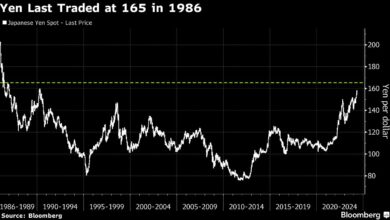Indonesian Rupiah Hits Four-Year Low Amid Dollar Strength

What’s going on here?
On June 14, 2024, the Indonesian rupiah fell to a four-year low against a robust US dollar, dropping 0.7% to 16,375.00.
What does this mean?
The rupiah’s decline highlights the broader vulnerability of Asian currencies amidst the dollar’s resilience. Year-to-date, the rupiah has lost 6%, including over 1% this week alone. Bank Indonesia (BI) might hold interest rates steady at its next meeting, although a rate hike isn’t off the table due to ongoing currency pressures. Barclays analysts foresee a possible 25 basis point increase if the rupiah continues to falter. BI has already stepped into the forex market to stabilize the situation and maintain investor confidence. Meanwhile, the Japanese yen also hit a six-week low, influenced by the Bank of Japan’s decision to keep rates unchanged and reduce future bond purchases, prompting further dollar strength.
Why should I care?
For markets: Next moves in a high-stakes game.
Asian currencies, including the South Korean won, Taiwanese dollar, Thai baht, and Malaysian ringgit, are all facing declines, contributing to the growing market tension. The US dollar index trading at 105.29 reflects the Federal Reserve’s stance on prolonged higher interest rates, which continues to exert pressure on other currencies. These dynamics are causing significant market shifts, with Singapore and Jakarta stocks falling 0.5% and 0.3%, respectively.
The bigger picture: Global economic ripples and policy shifts.
The broader international landscape remains turbulent. The IMF approved the second review of Sri Lanka’s $2.9 billion bailout, showcasing economic distress in emerging markets. Simultaneously, regional policy adjustments are underway: the Thai Prime Minister hinted at a new inflation target to facilitate rate cuts, while Malaysia maintained its 2024 inflation outlook despite diesel subsidy reforms. The return of $156 million worth of 1MDB funds to Malaysia by the US highlights ongoing efforts to rectify historic financial mismanagement.





